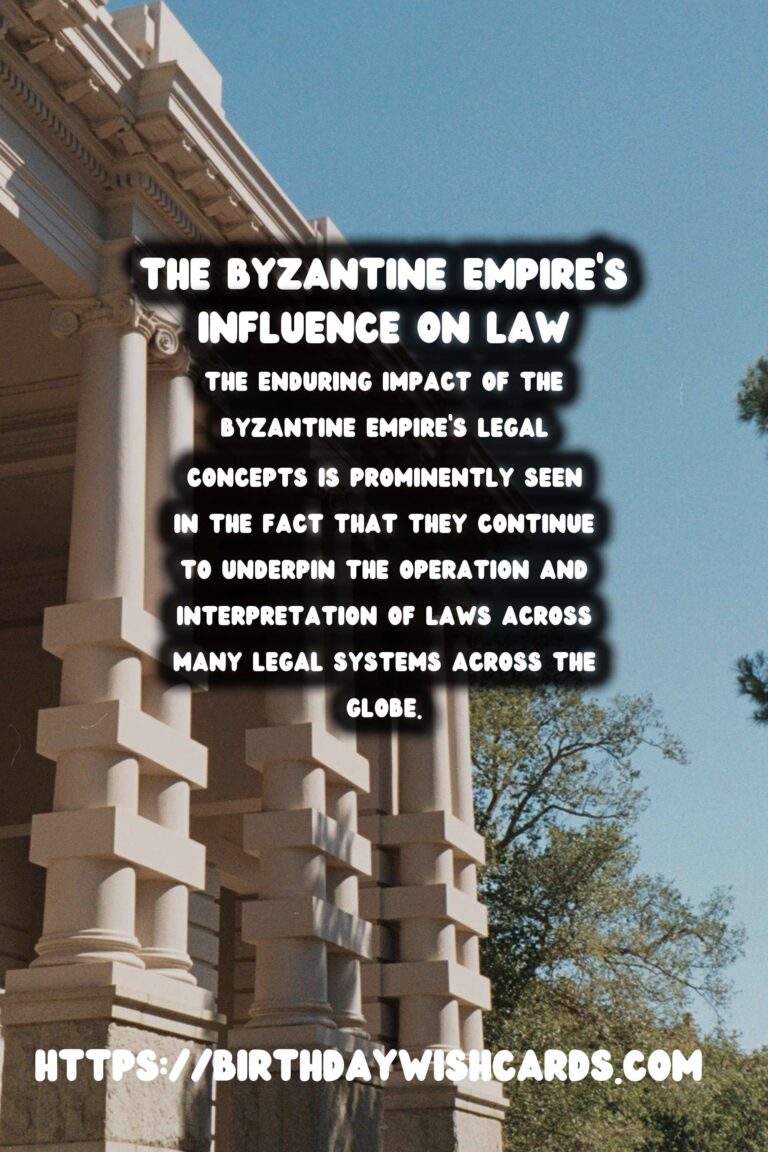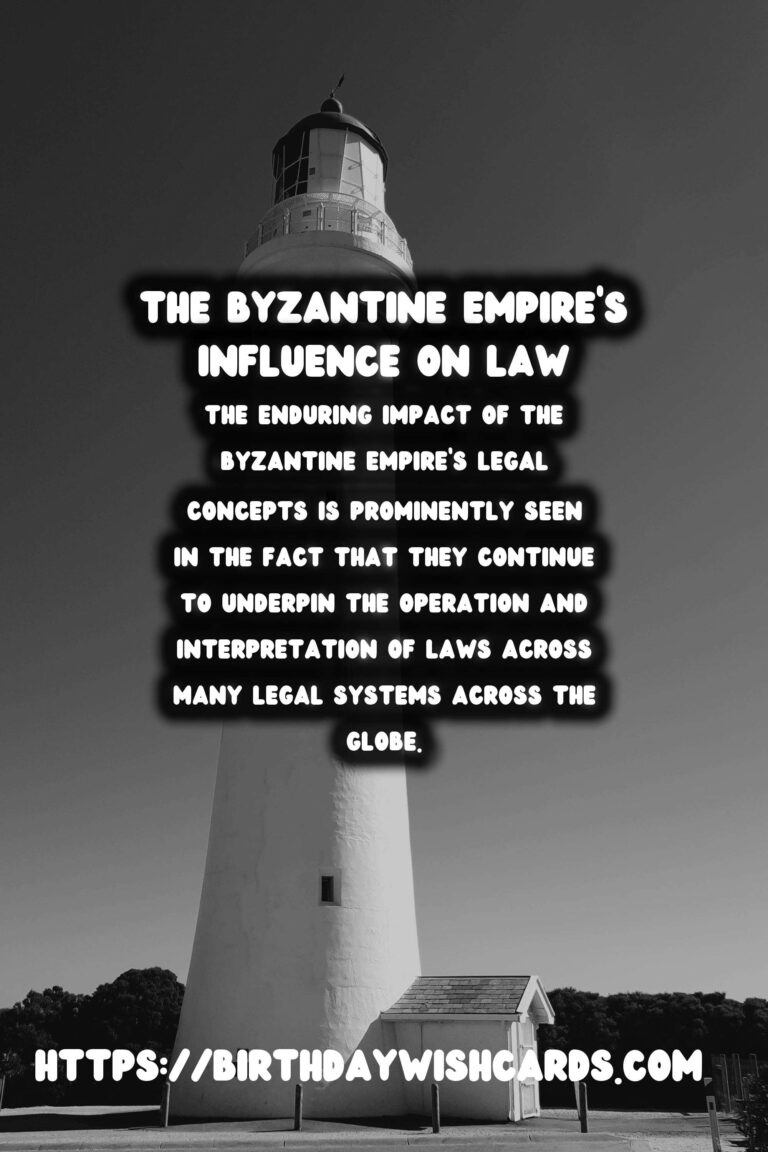
The Byzantine Empire, a continuation of the Eastern Roman Empire, was a beacon of culture, religion, and most importantly, law. It played a significant role in shaping the legal systems that many countries deploy today.
Introduction: The Historical Context of Byzantine Law
The Byzantine Empire lasted from approximately 330 to 1453 CE, with its capital in Constantinople. It was a melting pot of Greek, Roman, Christian, and Eastern influences, which contributed to its complex legal system.
The Corpus Juris Civilis
One of the most profound influences of the Byzantine Empire on modern legal systems is the Corpus Juris Civilis, or the ‘Body of Civil Law,’ compiled under Emperor Justinian I in the 6th century. This compilation, also known as the Justinian Code, served as the most comprehensive codification of Roman law. It was comprised of four parts: the Code, the Digest, the Institutes, and the Novellae.
The Code (Codex Justinianus) collected and organized existing imperial constitutiones (pronouncements of the emperors). The Digest (or Pandects) was a summary of writings of great Roman jurists, which provided a comprehensive approach to legal interpretation. The Institutes served as a legal textbook for law students and those entering the judicial world, while the Novellae showcased new laws implemented after 534 CE, reflecting the ongoing development of Byzantine law.
Influence on European Legal Systems
The resuscitation of the Justinian Code in the West during the 11th century marked the beginning of its influence on the legal systems of developing European nations. During the medieval period, it became a reliable source for understanding the principles of law, particularly in Italy, which served as a bridge in its transfer to Western Europe.
The Justinian Code became the foundation of the civil law tradition, dominating the legal systems of continental Europe. The laws were examined and adapted to fit the specific requirements of each locality. The system known as ‘Roman law’ or ‘civil law’ contrasts with common law systems predominantly found in the English-speaking world.
Impact on Canon Law and Modern Legal Systems
The Byzantine legal structure also had a lasting effect on the development of Canon law, the legal system governing the Catholic Church. The Church’s legal collections borrowed extensively from Justinian laws, ensuring their influence over ecclesiastical society.
In modern legal systems, codes directly derived from the Corpus Juris Civilis have given form to the civil codes of many countries such as France, Germany, and Italy. Notably, the French Napoleonic Code of 1804 took significant inspiration from the Justinian Code.
Conclusion: The Enduring Legacy
The enduring impact of the Byzantine Empire’s legal concepts is prominently seen in the fact that they continue to underpin the operation and interpretation of laws across many legal systems across the globe. By maintaining this heritage, nations benefit from a comprehensive understanding of justice and the cultivation of a legally cohesive society.
The Byzantine Empire’s sophisticated approach to law has left an indelible mark on history, reflecting the legacy of a society that balanced tradition with practical governance, contributing richly to the world’s cultural and legal tapestry.
The Byzantine Empire played a significant role in shaping the legal systems that many countries deploy today. The enduring impact of the Byzantine Empire’s legal concepts is prominently seen in the fact that they continue to underpin the operation and interpretation of laws across many legal systems across the globe. 









#ByzantineLaw #LegalHistory




